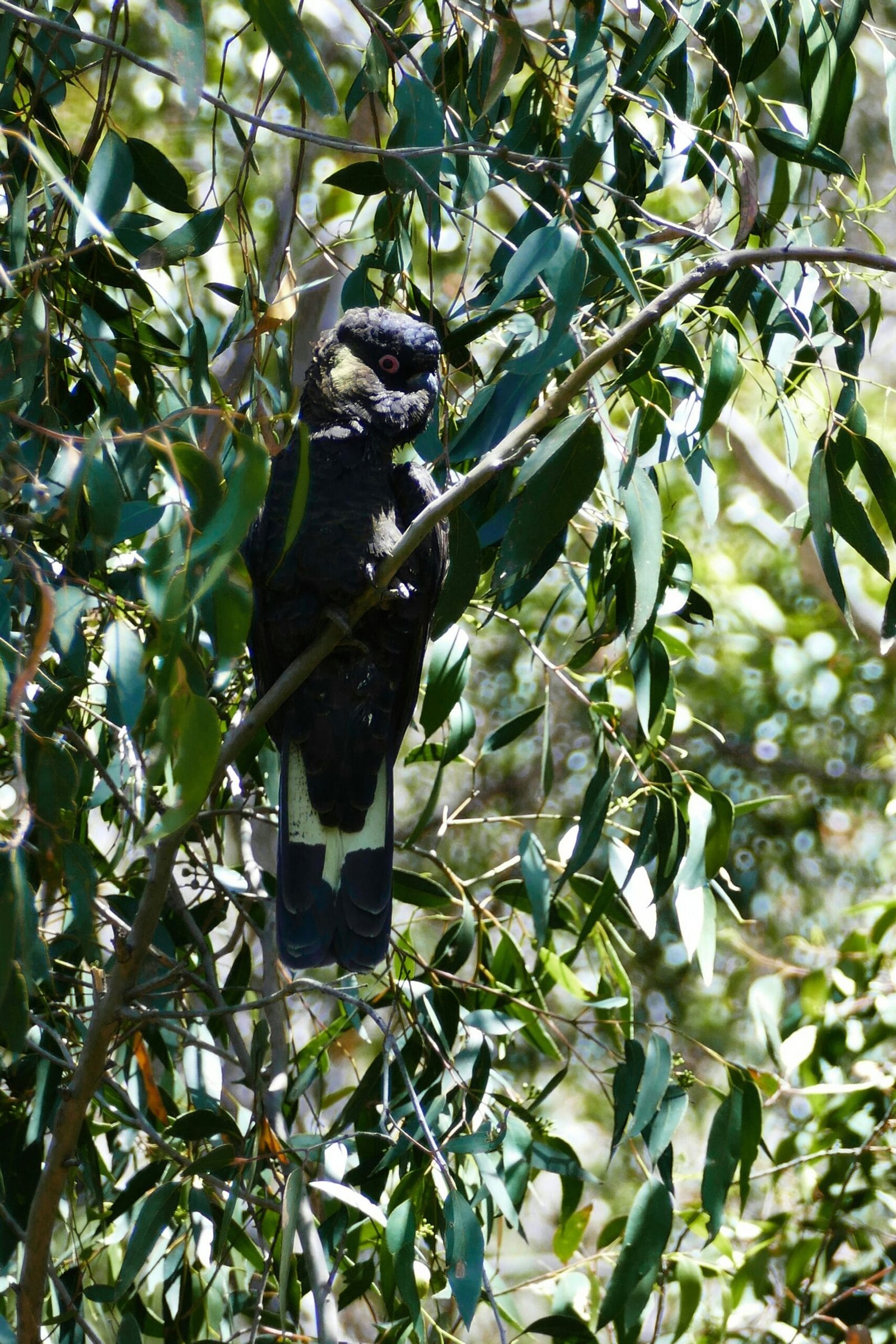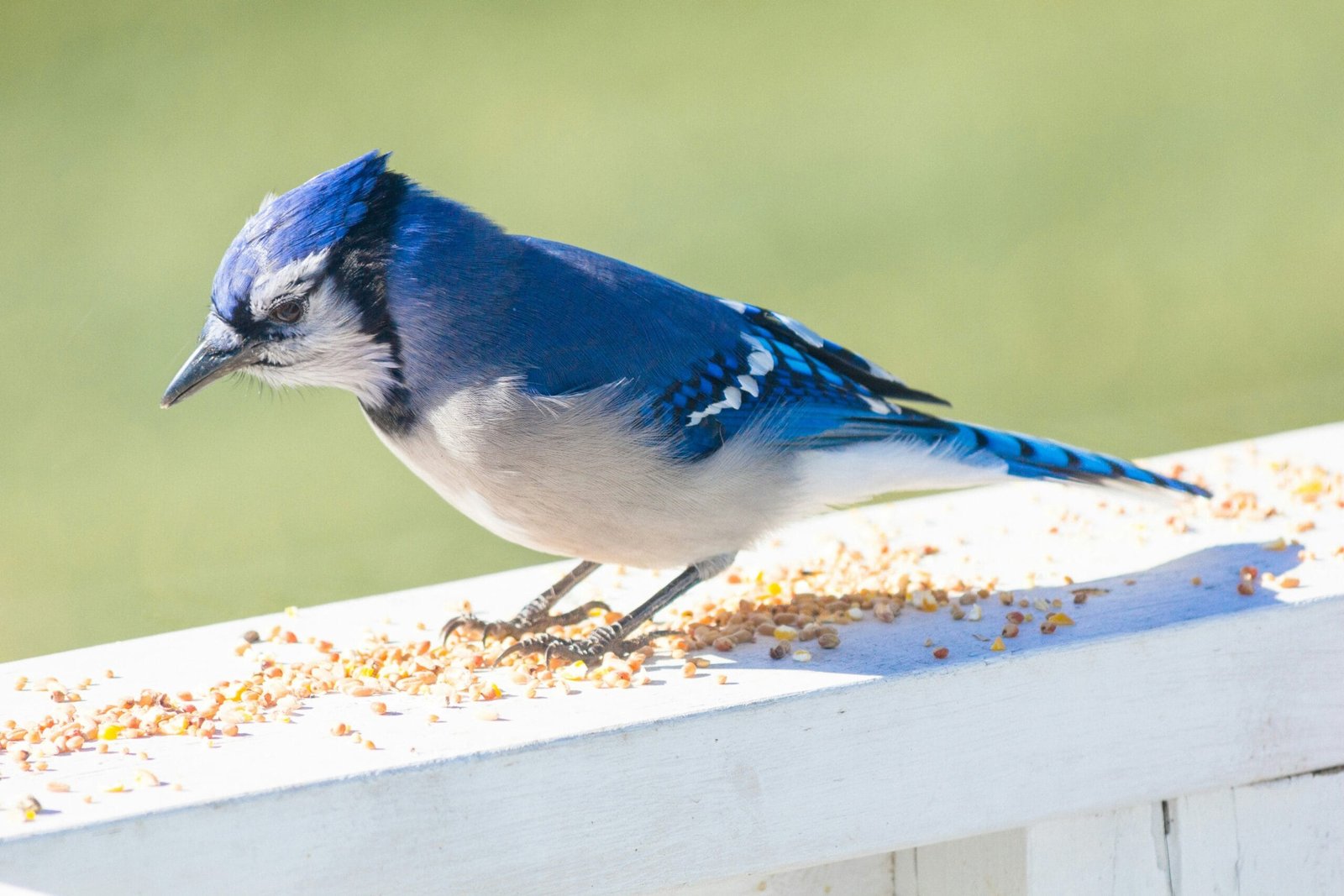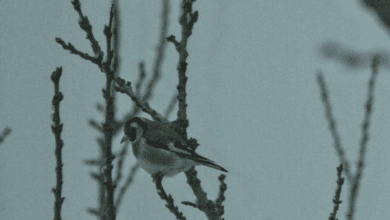The Science Behind Blue Jay Feather Fluffing: A Winter Survival Strategy

Introduction to Blue Jays and Their Winter Adaptations
Blue jays (Cyanocitta cristata) are captivating birds widely recognized for their vivid blue plumage and intricate behaviors. These intelligent members of the Corvidae family display a range of social and communicative skills, making them a common sight in many backyards across North America. Particularly notable is their adaptability to diverse environments, which enables them to thrive in urban landscapes as well as rural settings. However, the challenges associated with winter survival demand unique strategies and adaptations from these avian inhabitants.
As winter descends, blue jays face an array of hardships, including plummeting temperatures and reduced food availability. The harshness of their environment during this season necessitates clever survival techniques that allow them to cope effectively with increasingly frigid conditions. The scarcity of food sources, such as insects and berries, often necessitates a shift in their dietary habits. Blue jays are omnivorous, allowing them to consume seeds and nuts, which become essential components of their winter diet. Their ability to locate and store food, often seen in their caching behavior, helps them sustain their energy levels amidst the challenge of seeking nourishment in a frosty landscape.
One of the critical adaptations that blue jays employ to survive winter is their remarkable feather fluffing behavior. By fluffing their feathers, these birds increase the insulating air trapped close to their bodies, thus enhancing their cold-weather defense. This adaptation not only aids in thermoregulation but also provides a layer of protection against biting winds and freezing temperatures. Understanding the biology and behavior of blue jays during this difficult season allows us to appreciate their resilience and resourcefulness in the face of environmental challenges.
Understanding Feather Structure and Function
Bird feathers are remarkable biological structures that play a vital role in insulation, particularly for species such as the blue jay during harsh winter conditions. The anatomy of feathers consists primarily of a central shaft known as the quill, which leads to a branched structure comprising barbs. Each barb is further adorned with smaller filaments called barbules. This intricate design is crucial in creating an air pocket that aids in thermoregulation, enabling birds to maintain their body temperature in frigid climates.
Blue jays possess several types of feathers, including contour feathers, down feathers, and flight feathers. Contour feathers provide the outer layer of plumage, offering both waterproofing and a sleek appearance. However, it is the down feathers that play a pivotal role in insulation. These fluffy, soft feathers, located beneath the contour layer, lack the stiff structure of other feather types, allowing them to trap air effectively. The design of down feathers, characterized by their loose arrangement, creates a substantial layer of air that serves as insulation.
The function of barbules cannot be overlooked in discussing feather insulation. When a blue jay fluffs its feathers, the barbs separate, creating additional space for air to become trapped. This trapped air forms an insulating barrier, reducing heat loss and protecting the bird’s core temperature. Moreover, the structure and the interlocking nature of the barbules enhance the cohesion of the feather, contributing further to its overall function in temperature regulation. Understanding the unique feather architecture of blue jays reveals not only the beauty of these birds but also the evolutionary adaptations that allow them to thrive in cold environments.
The Mechanism of Fluffing Feathers
The physiological process of fluffing feathers in blue jays, and indeed in many bird species, is a remarkable adaptation that aids in thermoregulation, particularly during cold weather. This behavior involves the contraction and relaxation of specialized muscles located at the base of each feather. When a blue jay feels the chill of winter, it instinctively activates these muscles, causing the feathers to separate and protrude from the body, effectively increasing the bird’s overall insulation.
The manipulation of feathers to create larger air pockets is crucial for maintaining body heat. Blue jays have a unique arrangement of contour and down feathers, which play distinct roles in their insulation strategy. The down feathers, being finer and fluffier, are particularly efficient at trapping warm air close to the bird’s body. When fluffed, these down feathers form a barrier that significantly reduces heat loss. The resulting insulation layer is vital for survival, enabling blue jays to conserve energy that would otherwise be spent on thermogenesis.
<pfurthermore, a=”” ability=”” adapted=”” against=”” as=”” avian=”” behavior=”” birds=”” blue=”” climatic=”” conditions.<poverall, a=”” adaptation=”” adjustments=”” anatomical=”” and=”” approaches,=”” are=”” as=”” blue=”” both=”” by=”” characterized=”” cold=”” domain=”” evolutionary=”” feathers=”” fluffing=”” highlight=”” in=”” involved=”” jays=”” mechanisms=”” necessity.=”” of=”” p=”” physiological=”” product=”” remarkable=”” resource=”” scarcity.
Insulating Air Pockets: How They Work
Feathers play a crucial role in thermoregulation for birds, particularly during harsh winter conditions. When blue jays fluff their feathers, they create insulating air pockets that contribute significantly to their overall warmth. These air pockets are vital insulating layers that trap warm air and reduce heat loss, highlighting the principles of thermodynamics in action.
The mechanism by which air serves as an insulator is based on its poor conductivity. When blue jays fluff their feathers, the protruding shafts create spaces filled with still air, which retains body heat. This is because air, when stationary, does not conduct heat effectively. Consequently, the warm body heat of the blue jay is less likely to be lost to the cooler external environment, providing a critical survival advantage during frigid weather.
Additionally, this adaptation reflects the broader thermoregulatory strategies observed across the avian kingdom and in other animal classes. For instance, mammals like polar bears utilize a similar principle by allowing their thick fur to trap air, thereby maintaining optimal body temperatures in extremely cold conditions. Furthermore, species such as the arctic fox exhibit a layered coat that functions in much the same way, creating layers of insulation through fluffy fur and entrapped air. These adaptations underscore the evolutionary significance of insulating features in promoting survival in cold ecosystems.
Overall, the winter survival strategy employed by blue jays through feather fluffing demonstrates the intricate relationship between physical adaptations and environmental challenges. These insulating air pockets exemplify not only how blue jays maintain warmth but also how various species across the animal kingdom have evolved similar tactics to endure harsh climates effectively.
Energy Conservation During Winter Months
The ability to conserve energy during the harsh winter months is crucial for many bird species, including blue jays. When temperatures drop, birds must rely on strategies to maintain their body heat while minimizing energy expenditure. One of the most notable behaviors exhibited by blue jays is feather fluffing, which plays a significant role in their thermoregulation. By fluffing their feathers, blue jays create air pockets between their plumage, which serve as insulation. This insulated layer significantly reduces heat loss, thereby aiding these birds in maintaining their core body temperature in frigid conditions.
The relationship between body temperature, metabolism, and energy expenditure is integral to understanding the survival mechanisms of blue jays during winter. A lower metabolic rate can lead to reduced energy needs, enabling blue jays to conserve the vital energy reserves they require for foraging and other daily activities. Feather fluffing increases the insulating capacity of their feathers, which helps to lower their metabolic demands. In turn, this adaptation allows blue jays to survive longer periods without food, particularly when resources are scarce during the cold months.
Moreover, the effectiveness of feather fluffing is contingent on various factors, including the bird’s health, age, and environmental conditions. Healthy blue jays with well-maintained feathers are more proficient at fluffing, thus maximizing their energy conservation efforts. This, in turn, can lead to improved survival rates during extreme weather events, such as snowstorms or prolonged cold spells. As these birds adapt to changing environmental challenges, the ability to manage energy use becomes a critical component for their longevity and reproductive success.
Behavioral Observations of Blue Jays in the Wild
Blue Jays (Cyanocitta cristata) exhibit a range of intriguing behaviors, particularly during cold weather when survival becomes increasingly challenging. Observational studies and anecdotal evidence from dedicated birdwatchers illustrate these adaptations, especially their tendency to fluff their feathers. This behavioral response is primarily observed during winter, when temperatures drop and food sources become scarce.
Birdwatchers often report sightings of Blue Jays puffing up their feathers while perched on tree branches or foraging on the ground. This fluffing behavior serves multiple purposes; it not only creates an insulating layer that helps retain body heat but also appears to be a visual display of dominance or assertiveness toward other jays and nearby species. In fact, it is not uncommon to witness a Blue Jay fluffing its feathers during instances of territorial disputes or when trying to ward off potential threats.
During colder months, Blue Jays are also seen foraging actively for food, such as acorns and seeds. The act of fluffing their feathers often coincides with periods of inactivity, where they are resting or lying low in the foliage. Observations suggest that they do this intermittently, as a way to conserve energy while remaining vigilant of predators. Additionally, Blue Jays have been known to engage in communal roosting during particularly frigid nights, where multiple individuals huddle together, further enhancing their warmth through collective fluffing and body heat generation.
In essence, the behavior of Blue Jays during winter is a fascinating example of adaptation and resilience. Their feather fluffing not only plays a crucial role in thermoregulation but also influences social interactions, thereby enhancing their chances of survival in harsh environmental conditions. By closely monitoring these behaviors, ornithologists and birdwatchers gain valuable insight into the daily lives and survival strategies of these remarkable birds.
Comparative Analysis with Other North American Birds
The behavior of feather fluffing in blue jays serves as a fascinating focal point for examining how various North American birds adapt to cold weather. While blue jays employ this thermoregulatory strategy, other species, such as sparrows and cardinals, demonstrate comparable adaptations, albeit with some notable differences. Understanding these adaptations not only enhances our appreciation for avian intelligence but also provides insight into their survival strategies during winter months.
Sparrows, for instance, exhibit a similar behavior known as “feather ruffling,” which aids in creating an insulating layer of air. This phenomenon is particularly pronounced in species like the house sparrow, which faces temperature extremes. When temperatures dip, sparrows fluff their feathers to trap heat, thereby reducing heat loss in much the same way that blue jays do. However, sparrows tend to exhibit less frequent and less pronounced fluffing, perhaps because their smaller body size results in a higher surface area to volume ratio, making them more vulnerable to rapid heat loss.
Cardinals also partake in feather fluffing as a cold weather adaptation, creating a similar insulating effect. However, unlike blue jays, cardinals are known for their behavioral adaptations, including seeking out dense vegetation for added warmth and protection from harsh elements. This strategic behavior reduces their exposure to cold winds and snowfall, giving them an additional layer of survival strategy beyond mere physiological adjustments like fluffing. Furthermore, their vibrant plumage may also offer some camouflage against snow-laden backgrounds, deterring potential predators during winter.
In essence, while blue jays, sparrows, and cardinals utilize feather fluffing as a way to combat cold, their distinct adaptations reflect the diverse strategies evolved by North American birds to enhance their survival in challenging winter climates. Each species exhibits a unique balance between physiological mechanisms and behavioral tactics that contribute to their overall fitness in fluctuating temperatures.
Impact of Climate Change on Blue Jay Survival
Climate change poses significant challenges to various avian species, including the blue jay (Cyanocitta cristata). As a type of bird that relies heavily on specific habitat conditions, the blue jay’s survival is increasingly threatened by fluctuating temperatures and unpredictable weather patterns. These changes alter not only their immediate surroundings but also their behavior and migration strategies. For instance, the warming climate could lead to an earlier onset of spring, which might disrupt their natural breeding cycles.
Blue jays are known for their ability to adapt to different environmental challenges, including shifts in temperature. However, prolonged periods of high temperatures can strain their insulation capabilities. Their feather fluffing behavior, a strategy employed during winter to enhance warmth, may become less effective if temperatures fluctuate drastically. When they face milder winters, the insulation provided by fluffing may become unnecessary, leading to potential changes in energy expenditure and thermoregulation habits. Consequently, blue jays may find themselves poorly equipped for sudden cold snaps that follow periods of warmth.
Moreover, changing weather patterns can disrupt food availability. Blue jays are omnivorous and rely on acorns, seeds, and insects, all of which are subject to climate variances. Alterations in the timing of food production may result in food shortages, forcing blue jays to either migrate earlier or adjust their feeding habits, which can further strain their survival strategies during harsh winters.
As blue jays adapt to these challenges, their migration patterns may also shift in response to new climate realities. A trend toward shorter migrations or altered routes could affect interactions with other bird species and ecosystems. Understanding these dynamics is essential for conservationists aiming to create effective strategies for protecting blue jay populations and their habitats amid ongoing climate change.
Conclusion
The blue jay, a vibrant and intelligent bird, demonstrates remarkable adaptation through its feather fluffing behavior, especially during the challenging winter months. This physiological response serves not only as a survival strategy but also as a testament to the intricate and delicate balance of ecosystems. The ability of blue jays to adjust their feathers to trap air creates a vital layer of insulation, ensuring they maintain body heat in frigid temperatures. Such adaptations are essential for their survival, highlighting the inherent resilience found within avian species.
The fluffing behavior is a striking example of nature’s ingenuity, showcasing how wildlife has evolved diverse strategies to navigate the harsh realities of their environments. Birds like the blue jay embody the intricate connections that exist in nature, where each adaptation contributes to the broader ecological narrative. These creatures serve as indicators of environmental health, and their ability to thrive in adverse conditions provides insights into the resilience of species affected by climate change and habitat loss.
Encouraging a deeper appreciation for the natural world is essential, and understanding these survival strategies can foster a sense of responsibility in individuals. Wildlife conservation is critical to ensuring that species like the blue jay continue to flourish despite the many challenges they face. By supporting conservation efforts and becoming more engaged in environmental stewardship, individuals can contribute to the preservation of biodiversity and the habitats that sustain it. In conclusion, the fluffing behavior of blue jays is not merely a fascinating biological curiosity but a vital adaptation that underscores the intricate relationships within the ecosystem and the importance of maintaining a healthy environment for all species. Recognizing and promoting this adaptation can inspire action towards a more sustainable future.




